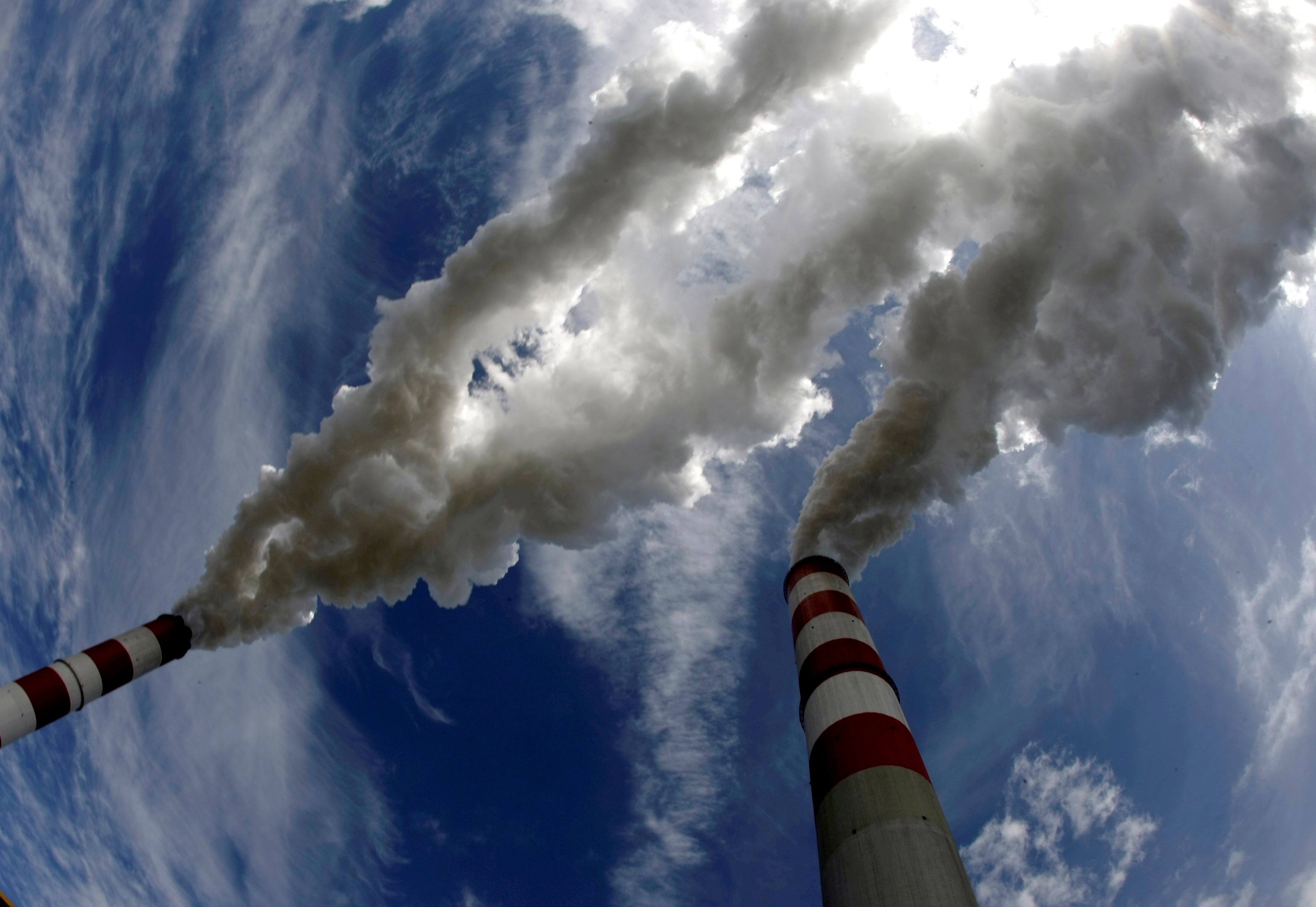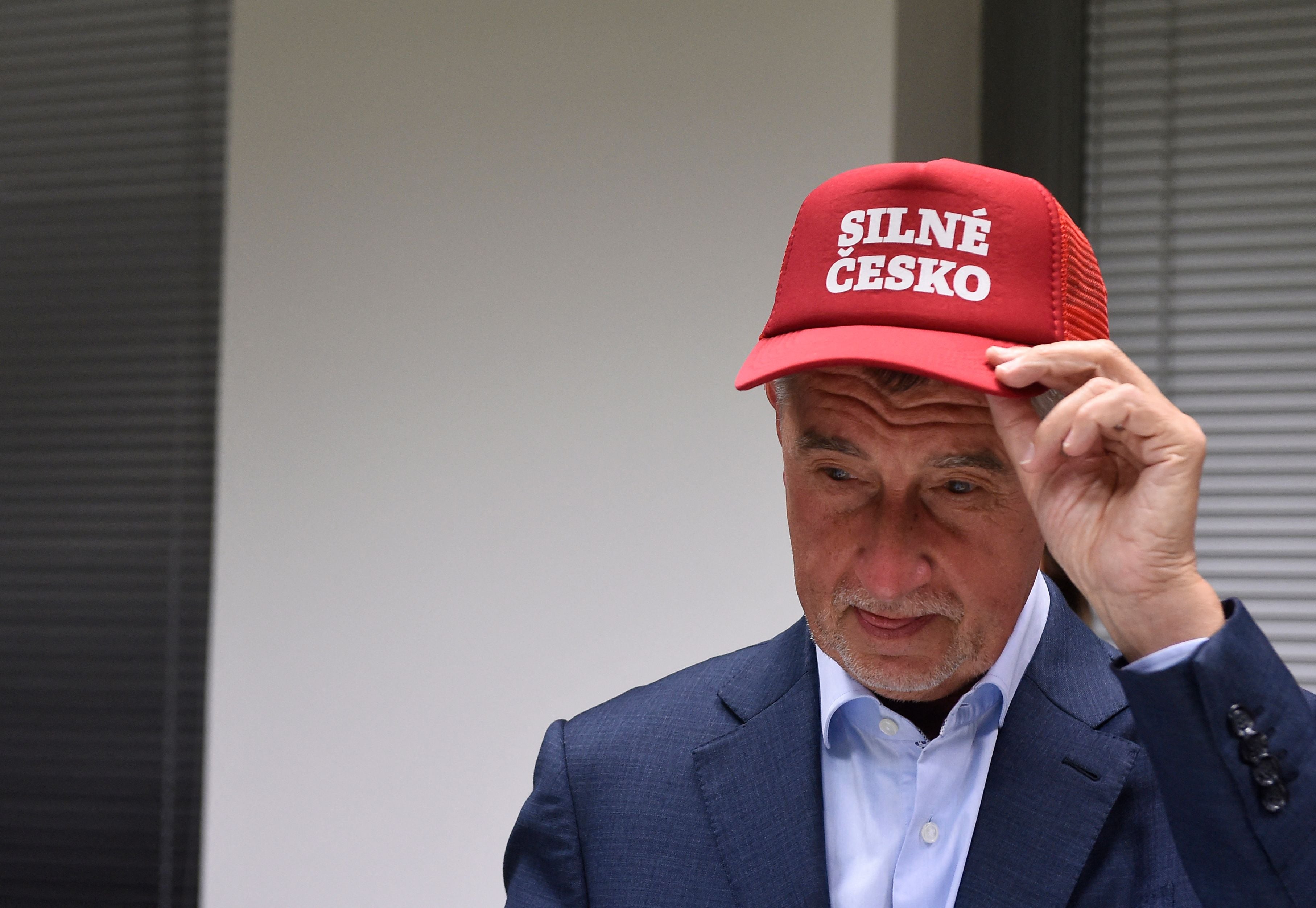How the Czech Republic and Poland are putting the EU’s climate strategy at risk
Central Europe now poses a serious obstacle to the realisation of the EU’s emissions reduction target to reduce emissions by 55 per cent by 2030, writes William Nattrass

Data from the European Environment Agency makes damning reading for the Czech Republic.
The country is the EU’s third-largest emitter of greenhouse gases per capita. And while the top two greenhouse gas guzzlers, Luxembourg and Ireland, are reducing their carbon footprints, Czech emissions are actually increasing.
The poor performance of the Czech Republic is part of a wider problem with central and eastern European countries whose lack of action in phasing out fossil fuels is leading to concerns about the EU’s ability to meet its own climate targets.
In July this year, coal power accounted for over 37 per cent of the Czech Republic’s electricity production. In neighbouring Poland, the share of coal-powered electricity was a whopping 78.5 per cent. Levels of fossil fuel consumption are also high in other central and eastern European countries like Slovenia and Bulgaria.
The region now poses a serious obstacle to the realisation of the EU’s emissions reduction targets. Brussels wants to reduce emissions by 55 per cent by 2030 and achieve carbon neutrality by 2050.
The targets, which were formally approved by ministers from all EU countries except for the abstaining Bulgaria, were an ambitious step up from a previous goal to cut emissions by 40 per cent by the end of the decade.
Unsurprisingly, the change of pace entails more focused efforts to instigate a transition away from fossil fuels. Central and Eastern European countries, home to much of the bloc’s heavy industry, are now starting to feel the harsh reality of the emissions targets which they themselves approved.
The mammoth task of replacing coal power is already causing significant controversy. The European Commission weighs in behind the Czech Republic in a dispute over Poland’s decision to extend a licence for operations at its huge Turów coal mine on the Czech-Polish border.
We will not agree with the ban on selling fossil-fuel powered cars. It’s not possible. We can’t dictate here what green fanatics devised in the European Parliament
The Commission may have seen the dispute – begun by local Czech residents who complained about the impact of the mine on the surrounding environment – as an opportunity to hasten the decline of coal power in Poland. Mining at Turów accounts for around 5 per cent of the country’s power.
Instead, it led to furious resistance from the Polish government. Prime Minister Mateusz Morawiecki said closing down the mine – which employs around 5,000 people – would lead to “an energy disaster, and consequently, huge social problems.”
Turów has become symbolic of regional resistance to the shift to renewable energies. At the end of August, a German Green MEP organised a 30-kilometre bike tour around the mine to raise awareness of continued operations at the Polish “climate killer.”
It’s not all bad news for phasing out coal in central Europe. Domestic coal mining in Poland is scheduled to end in 2049, while one of the Czech Republic’s biggest coal power plants closed at the end of August as part of a shift towards more sustainable energy solutions.
Yet the Turów stand-off highlights the yawning chasm between energy production in western and eastern Europe. With a new study suggesting that the EU will miss its emissions targets by an enormous 21 years, the tardiness of countries like Poland and the Czech Republic is causing mounting frustration.
At Greenpeace, we think the Czech Republic should not pump billions into technology that may or may not be finished in 20 years but should start by focusing on the potential offered by renewable energy
Some propose nuclear power as a more sustainable alternative to fossil fuels, but local experts say the lengthy process of approving and building new reactors makes them unsuitable for meeting tight deadlines.
“An optimistic timeframe for starting operations at new reactors would be 2040, while the phase-out of coal is due in 2030 at the latest. To achieve total decarbonisation by 2050, it would be better to mix renewables with energy efficiency and storage solutions as well as existing nuclear reactors,” Aleš Miklík from The Rainbow Movement, a member of Friends of the Earth International, told The Independent.
Jiři Jerabek from Greenpeace Czech Republic agrees that investing in new nuclear reactors is a risky bet given lengthy and uncertain approval processes.
“At Greenpeace, we think the Czech Republic should not pump billions into technology that may or may not be finished in 20 years but should start by focusing on the potential offered by renewable energy,” he told The Independent.
Meanwhile, the EU is proposing radical policies such as a total ban on the sale of combustion-engine vehicles by 2035.

The proposal has met the ire of Czech prime minister Andrej Babiš due to the importance of the country’s automotive industry, which accounts for around a third of the national economy. Babiš has singled out the EU proposal as a vehicle for exemplifying his commitment to protecting national interests ahead of elections in October.
“We will not agree with the ban on selling fossil-fuel powered cars. It’s not possible. We can’t dictate here what green fanatics devised in the European Parliament,” he declared.
Yet activists note that the Czech Republic’s reliance on the automotive industry is not necessarily an obstacle given the potential to switch production to electric vehicles.
“The transformation of our energy and transport systems won’t be easy, but this process is being undertaken by the whole of the EU, and there are various support schemes and legislative measures in place to make it easier,” Jiři Jerabek argued.
Countries in central and eastern Europe have significant work to do to catch up with the rest of the EU on meeting emissions targets. Faced with the stark necessity of phasing out fossil fuel technologies, the EU’s fight against climate change could see its most resistant member states making the greatest sacrifices.






Join our commenting forum
Join thought-provoking conversations, follow other Independent readers and see their replies
Comments